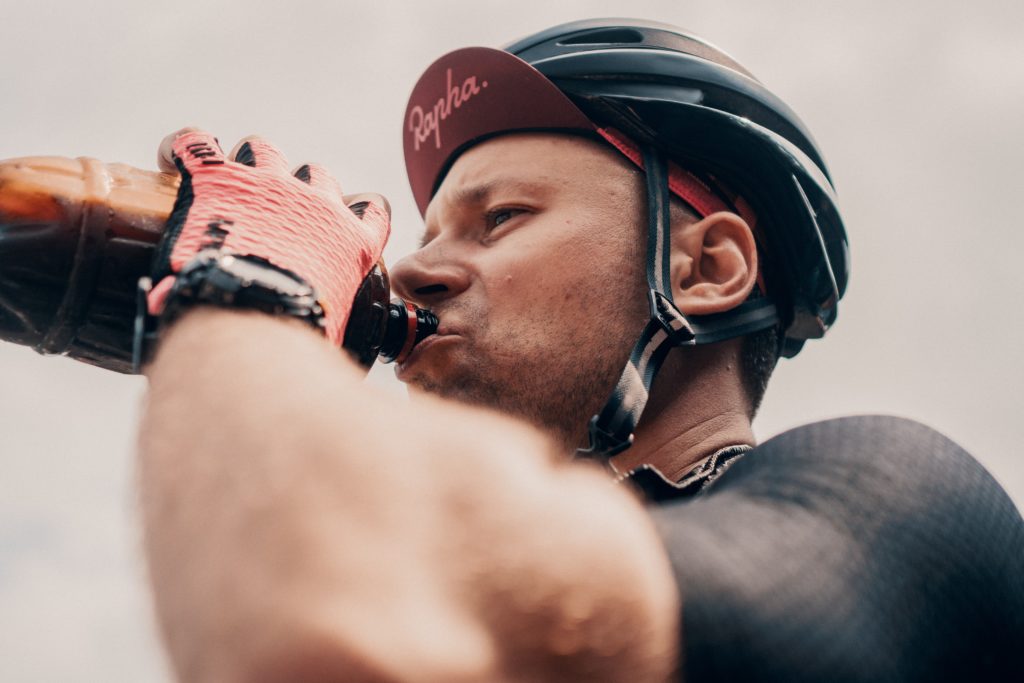
Due to social distances and other appropriate precautions during the COVID-19 pandemic, many people are filling the void in their lives with outdoor endurance exercises such as running, cycling, hiking etc. However, as summer is in full swing, with temperature and humidity rising, remembering to properly hydrate is essential.
Next to oxygen, water is the nutrient most needed for life. A person can live without food for a month, but most can survive only three to four days without water. Even though proper hydration is essential for health, water gets overlooked as one of the six basic nutrients. Dehydration occurs when the amount of water taken into the body is less than the amount that is being lost. Dehydration can happen very rapidly (i.e. in less than eight hours); the consequences can be life threatening and the symptoms can be alarmingly swift.
In the body, water is needed to regulate body temperature, carry nutrients, remove toxins and waste materials, and provide the medium in which all cellular chemical reactions take place. Fluid balance is vital for body functions. A significant decrease in the total amount of body fluids leads to dehydration. Fluids can be lost through the urine, skin, or lungs. Along with fluids, essential electrolytes, such as sodium and potassium, are also perilously depleted in a dehydrated individual.
The risk of dehydration is not limited to endurance athletes and outdoor enthusiasts. Dehydration is the most common fluid and electrolyte disorder of frail elders, both in long term care facilities and in the community! Elders aged 85 to 99 years are six times more likely to be hospitalized for dehydration than those aged 65 to 69 years.
Is water adequate to prevent dehydration? Will a sports drink improve my performance? While some answers to these questions apply generally to all, others vary according to the temperature, humidity, length of time and intensity of the activity and condition of the athlete.
Proper hydration is essential for the comfort and safety of the recreational and serious athlete. Hydration is critical to maintain cardiovascular function, body temperature and muscle performance. As temperature, humidity, intensity, and duration of exercise increase, so too does the importance of proper hydration. Excessive sweating can lead to a loss of blood volume which requires the heart to work much harder to circulate you blood through your body.
Dehydration is a major cause of fatigue, loss of coordination, and muscle cramping leading to poor performance. Prehydration, (drinking before exercise) is the first step in preventing dehydration. Marathon runners, other long-distance runners, and cyclists often prehydrate1-2 days before a big event. Rehydration, (drinking during or after exercise) is the second step in preventing dehydration. While athletes may be more vulnerable to dehydration, all persons engaging in exercise would benefit from increased performance, delayed muscle fatigue and pain by maintaining adequate hydration. Proper prehydration would include drinking 12-16 ounces of water 1-2 hours before exercise. Athletes with other health issues should consult their family physician before engaging in long distance endurance sports.
NEXT MONDAY – Read Dr. Paul J. Mackarey “Health & Exercise Forum!”
For all of Dr. Mackarey articles visit https://mackareyphysicaltherapy.com/forum/
This article is not intended as a substitute for medical treatment. If you have questions related to your medical condition, please contact your family physician. For further inquires related to this topic email: drpmackarey@msn.com
Paul J. Mackarey PT, DHSc, OCS is a Doctor in Health Sciences specializing in orthopaedic and sports physical therapy. Dr. Mackarey is in private practice and is an associate professor of clinical medicine at GCSOM.